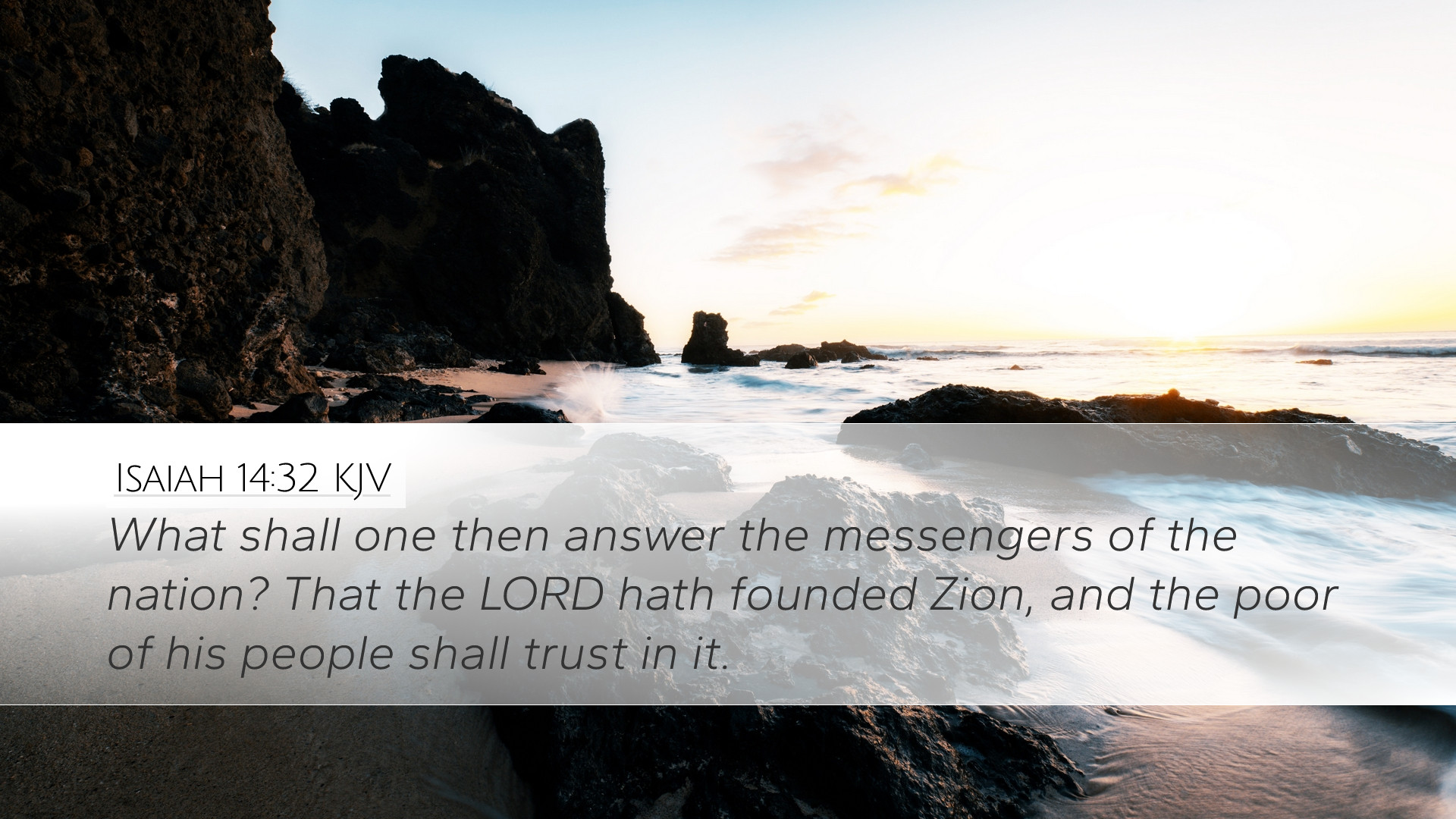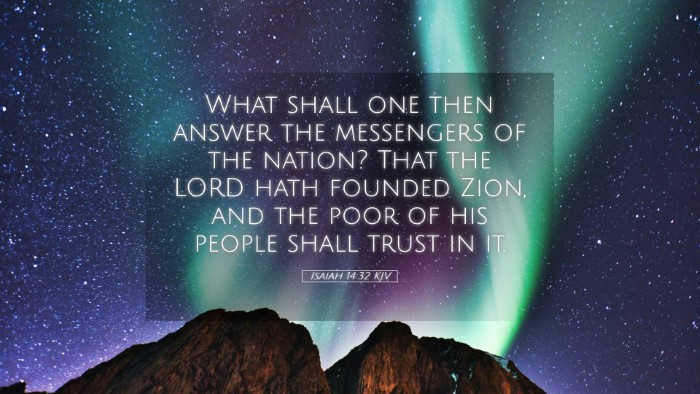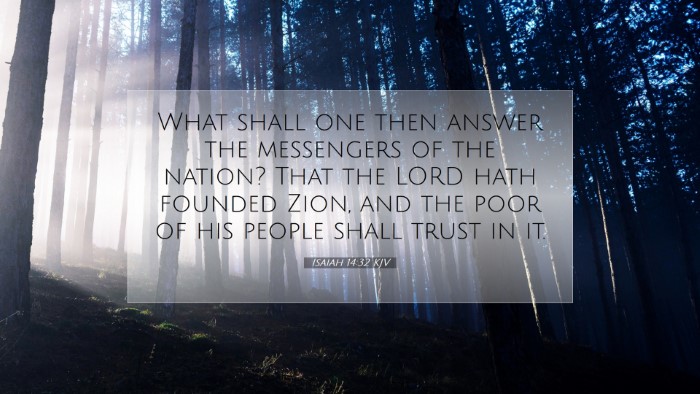Commentary on Isaiah 14:32
Isaiah 14:32 states: "What will one then answer the messengers of the nation? That the LORD has founded Zion, and the poor of His people shall take refuge in it." This verse serves as a significant reflection on God's sovereignty, the establishment of His kingdom, and the hope offered to the marginalized.
Contextual Background
This verse is nestled within a prophetic oracle against the nation of Philistia. Isaiah's prophecies emphasize the judgment upon nations that oppose God's will, and this particular verse turns the focus towards Zion, God’s sacred dwelling place. The reference to messengers indicates communication between nations, often concerning war, alliances, or news of events affecting their stability.
The Sovereignty of God
The phrase "the LORD has founded Zion" emphasizes the divine establishment of His people. As noted by Matthew Henry, this foundation is secure and immutable, contrasting the unstable nature of earthly kingdoms. Isaiah is proclaiming that despite the threats from Philistia or any other nation, Israel’s security rests not upon military might but on the inviolable promise of God.
Significance of Zion
Albert Barnes highlights that Zion represents not only a geographic location but also symbolizes the heart of God’s kingdom and His people. It serves as a refuge for the poor and afflicted, reflecting God’s compassion and justice. The imagery of refuge is critical as it illustrates that in times of trouble, those who are downtrodden can find safety and solace in God's presence.
The Poor of His People
Isaiah’s mention of "the poor of His people" indicates a group often marginalized and overlooked in society. Adam Clarke expresses that God's concern for the poor is central to His character; thus, the establishment of Zion is inherently tied to the well-being and protection of the oppressed.
- Inclusivity of God’s Kingdom: The reference to the poor highlights that God's kingdom is inclusive, welcoming those who are humble and in need.
- God's Righteousness: It reinforces the idea that the divine economy is not aligned with worldly standards, where success often overshadows the needs of the needy.
- Hope and Restoration: This verse serves as a beacon of hope for those who may feel defeated, that in God's kingdom, their plight is seen and heard.
Theological Implications
Isaiah 14:32 serves several theological functions. Firstly, it affirms the doctrine of divine providence, wherein God guides and governs the affairs of nations and His people. Additionally, it underscores the eschatological hope that points to a final restoration where God's people will dwell securely in His presence.
Response to the Nations
The question "What will one then answer the messengers of the nation?" indicates a moment of reflection for the Israelites. Matthew Henry provides insight that the answer is not in military responses but rather in the acknowledgment of God’s sovereign plan. The messengers symbolize communication between nations establishing the contrast between worldly wisdom and divine revelation.
Application for Today
For pastors, students, theologians, and biblical scholars, this passage serves as a reminder of the importance of supporting those in need within the community and the church. It calls on believers to provide aid to the marginalized and vulnerable, following the model of God's heart for the poor.
- Justice and Compassion: Ministries must prioritize social justice, reflecting God's concern for the oppressed.
- Trust in God's Sovereignty: Encourage congregants to trust in God's plans, especially in turbulent times, by revisiting instances of His faithfulness.
- Evangelism: Use the promise of sanctuary in Zion as a foundation for evangelism, inviting those who feel lost and hopeless into the safety of God’s kingdom.
Conclusion
Isaiah 14:32 layers deep theological truths within its simple yet profound message about God’s kingdom. The establishment of Zion is an assurance of God’s faithful presence and protection for His people, particularly for those who find themselves in the margins of society. As we contemplate the nature of God’s sovereignty and justice, this passage challenges us to embody these principles in our lives and ministries.


